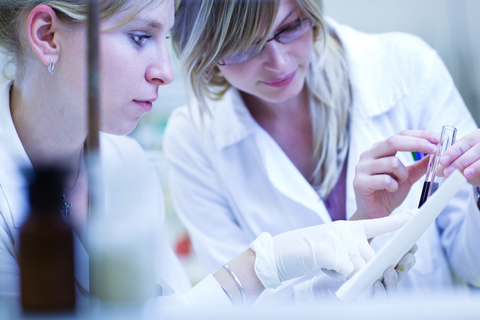Funding to develop next generation of AI leaders

Swansea University has been awarded funding from the UK Government to create one of sixteen new Centres for Doctoral Training (CDTs) in Artificial Intelligence.
It is part of a £100m investment by UK Research and Innovation (UKRI) aimed at enabling a new generation of PhD students to use AI technology to improve healthcare, tackle climate change, analyse Big Data and create new commercial opportunities.
Swansea University reports the UKRI Centre for Doctoral Training in Artificial Intelligence, Machine Learning and Advanced Computing will be led by Professor Gert Aarts from its Department of Physics, working with the Universities of Aberystwyth, Bangor, Bristol and Cardiff, Supercomputing Wales and a range of external partners, including large multinationals and local SMEs.
Gert Aarts said “We are delighted our bid to create this CDT has been successful and are very excited to be playing such a crucial role in this important field. Our CDT will enhance the skills set of our doctoral students, via training delivered in partnership with Supercomputing Wales and our external partners. As is well known, AI nowadays underpins a wide range of activities, from the discovery of gravitational waves to the detection of breast cancer; our students will contribute to these exciting developments via state-of-the-art research projects, which cover fundamental particle physics and astronomy, the health and clinical sciences, and novel ideas in mathematical, physical and computer science. As a particle physicist by training, I am particularly pleased by the fact that we will be able to bring together research carried out at large STFC-funded science facilities such as the Large Hadron Collider and the Laser Interferometer Gravitational-Wave Observatory, with research in the medical and computer science areas, enabling our doctoral researchers to make an impact across a wide range of disciplines and industries.”
Cardiff University reports Roger Whitaker, its Professor of Collective Intelligence and Dean of Research in Physical Sciences and Engineering, said “We are proud to be key partners in training the next generation of experts in AI. This involves researchers from across all our three Colleges at Cardiff, in areas where AI is already having a significant impact. Led by Professor Gert Aarts at Swansea University, the CDT will engage with data from large science facilities such as the Large Hadron Collider and Laser Interferometer Gravitational-Wave Observatory (LIGO); biological, health and clinical sciences; and novel mathematical, physical and computer science approaches to train doctoral researchers who can make an impact across a wide range of disciplines and industries.”
The Wales CDT will also involve the MRC Cloud Infrastructure for Microbial Bioinformatics (CLIMB) project, which involves Cardiff, Swansea, Warwick and Birmingham Universities, and Cardiff University’s Crime and Security Research Institute.
The project will see a thousand new PhDs created to drive the development of AI. They will be working with three hundred project partners who are investing £78m in cash or in kind contributions and partner universities are committing a further £23m, resulting in an overall investment of more than £100m.
Business Secretary Greg Clark said “The UK has long been a nation of innovators and today’s package of AI skills and talent investment will help nurture leading UK and international talent to ensure we retain our world-beating reputation in research and development. Artificial intelligence has great potential to drive up productivity and enhance every industry throughout our economy, from more effective disease diagnosis to building smart homes. Today’s announcement is our modern Industrial Strategy in action, investing in skills and talent to drive high skilled jobs, growth and productivity across the UK.”
UKRI Chief Executive, Professor Sir Mark Walport, said “Artificial intelligence is a disruptive technology in a range of sectors, enabling new products and services and transforming data science. It allows us to develop new approaches to challenges as diverse as early disease diagnosis and climate change. To maintain its leadership in AI, the UK will need a new generation of researchers, business leaders and entrepreneurs equipped with new skills. Working with partners across academia and industry, the centres announced today will provide the foundations for these future leaders.”








